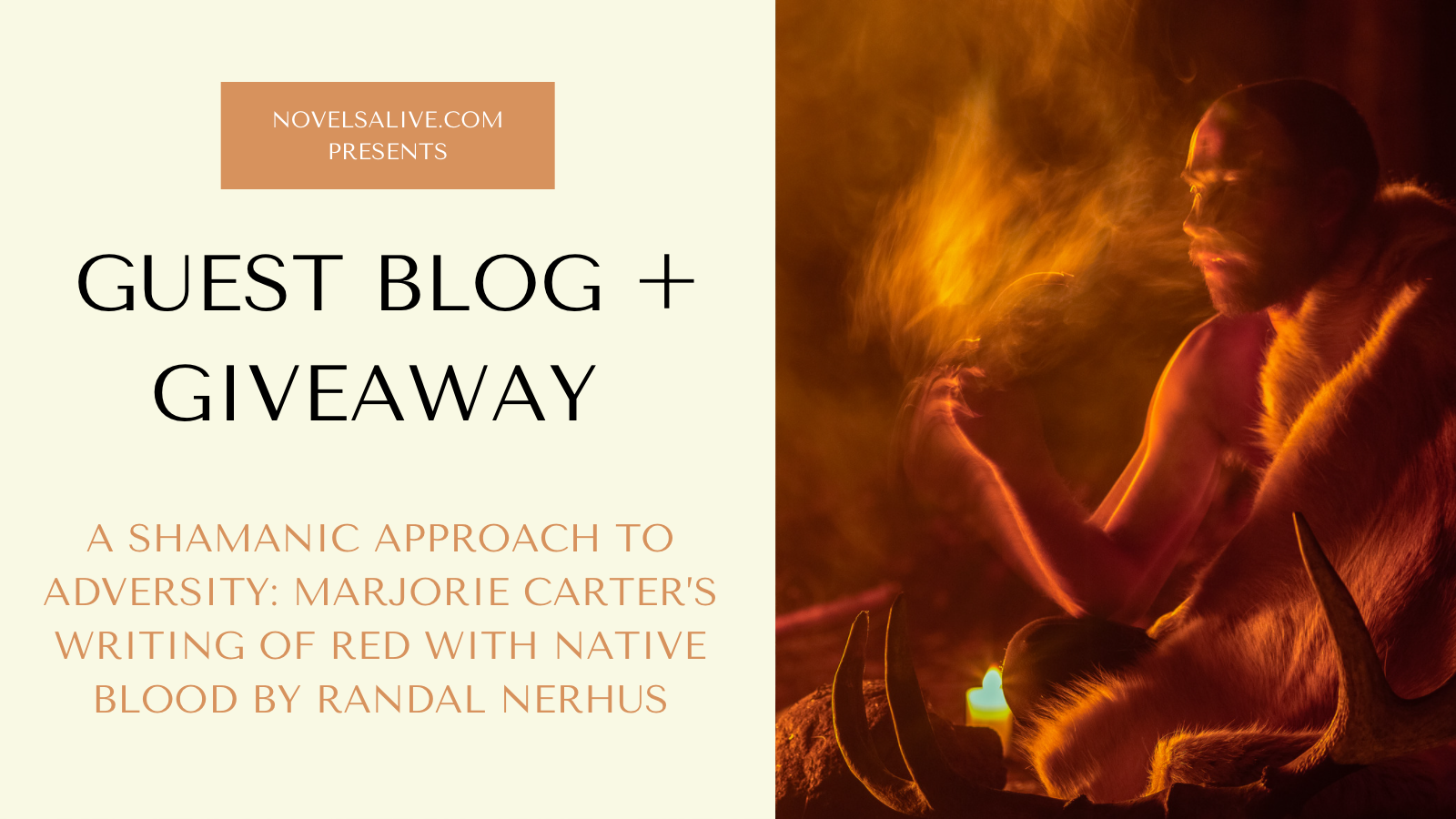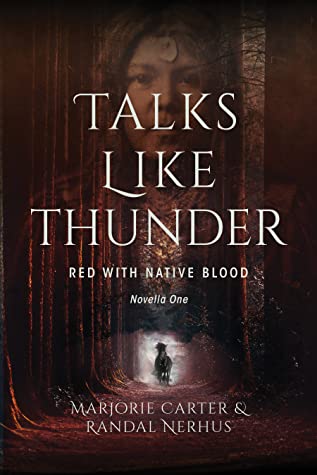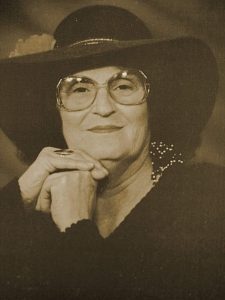 In my decades of study and practice in the field of religion, I’ve found that shamans are different from others by the intensity of their discipline and an unrelenting belief that they will accomplish their goals. That discipline and belief seems to draw unconquerable obstacles that they must overcome. I hope to illustrate this in Marjorie’s story.
In my decades of study and practice in the field of religion, I’ve found that shamans are different from others by the intensity of their discipline and an unrelenting belief that they will accomplish their goals. That discipline and belief seems to draw unconquerable obstacles that they must overcome. I hope to illustrate this in Marjorie’s story.
In 1998, living in Dallas, Texas, Marjorie was sixty when a stroke left her partially paralyzed, forcing her to use a wheelchair. Years before, she had purchased a ranch near San Miguel de Allende, Mexico. Unable to continue working in real-estate, she moved to her ranch and made a pact with the spirits to allow her to live long enough to write a novel to help her Native American people embrace their heritage.
Her stroke had also paralyzed her left arm, her right was crippled by arthritis. Thus, she only typed with her right index finger. Consumed by the urge to write her story, Marjorie saved her work to plastic floppies, but when the yearly dust storms came, her floppies were corrupted by grit and became unreadable.
She retyped her entire manuscript four times with one sole finger.
I met Marjorie in a writing group in 2002. Though she had retrained herself to walk, her hands were still hardly usable. I volunteered to help her maintain her ranch and combine her writings.
Four desktop computers and multiple floppies were strewn about her workplace. On one computer, the mouse didn’t work, another the monitor dead. Yet another, the keyboard unusable. Remarkably, some files on her floppies were still partially readable. It took weeks to move all of her writing to her best computer with a functioning hard drive, monitor, keyboard, and mouse.
A month later, Marjorie’s daughters bought her a laptop, which, after transferring the files, made writing much easier for her. As time rolled on, I wrote my own story of my life in India, while Marjorie kept writing Red With Native Blood.
One day, Marjorie sat me down and asked, “Tell me again about your story.”
“I want it complete at 200 pages.”
“A limitation. What else?”
“Two main characters, with six minor characters.”
“Another limitation. What else?”
“It’ll all take place within a year.”
“You’ve created many restrictions for yourself.”
“Yes.”
“How can you write a great novel with so many limitations?”
In the following years, I noticed that Marjorie wrote while in deep pain from her stroke and arthritis.
In 2004, while working on our writing, she shared that a doctor had prescribed her 1500 mg pills of Ibuprofen. She popped one in her mouth and downed it.
“Aren’t a couple 200 mg pills the max?” I asked.
“Those are useless. A whole bottle of those won’t ease the pain!”
Twenty minutes later she took another 1500 mg pill.
I watched aghast, wondering how her body could take such abuse.
Twenty minutes later, she took another 1500 mg pill with a half glass of milk. 4500 mg of Ibuprofen within an hour—incredible. Only a shaman could pull that off! Soon after, she felt better and was ready to take a look at my writing.
After hours of work, Marjorie had chores to do. She asked me to put away her laptop. I should have taken more care… That night, when Marjorie lifted the unzipped bag, her laptop fell to the tile floor, cracking the monitor, rendering it useless.
Heartsick, Marjorie couldn’t face the horror of losing her writing again. Finally, a week later, she took the laptop to a shop and learned that the novel was still on the hard drive. However, she needed an external monitor. My thoughtlessness urged me to make a backup on my computer.
Marjorie suddenly died of pneumonia in July 2004, leaving me with the only copy of her manuscript.
After 18 years of rewrites and redactions, here is Marjorie Carter’s story for her people.
The first novella in the Red With Native Blood series, Talks Like Thunder, an inspiring story of resilience, grit, and perseverance of a young female Apache warrior, is available now on Kindle. The audiobook is available on Audible.
In the second novella, Falling Star, Thunder meets a Cheyenne girl Falling Star and they forge a friendship in their harrowing journey to escape the white-eyes. Falling Star is available for preorder and set to be released on Kindle in May, and Audible in June.
Red With Native Blood’s incredible culmination in the third and last novella of the trilogy, Singing Wind, the story of a young Lakota girl named Singing Wind who meets Thunder and Falling Star, all hoping to start a new life. Singing Wind will be released on Kindle in July and Audible in August.

Red With Native Blood: Novella 1
Publication Date: March 14, 2022
 A Native American seer and shaman pens a powerful YA fiction novel based on a vision of an 1870s Apache battle.
A Native American seer and shaman pens a powerful YA fiction novel based on a vision of an 1870s Apache battle.
An inspiring story of resilience, grit, and perseverance of a young female Apache warrior.
Posthumously published, Red With Native Blood is a three-novella series that begins with Talks Like Thunder.
Talks Like Thunder is seven when her grandfather, Gray Fox, nantan of the Three Hills Chiricahua, learns of her parents’ passing and claims her, and they travel to his tribespeople’s village in the New Mexico territory. Thunder leaves behind her beloved but fairly ruined village that has been ravaged by fever, the white man’s “rotten stomach” illness, and likely starvation.
After at first wanting to escape her new Apache village, feeling like an outsider among the Chiricahuas, she soon falls into a somewhat contented routine, learning to ride a horse, developing hunting skills, and even making a special friendship with a young brave, Golden Eagle. As time goes on her grandfather teaches her many things about nature and its creatures, plants, the stars and universe, and the Apache’s supreme deity, Ussen.
She welcomes this new knowledge and works hard to stake her place. Soon, she is invited into the Warrior Society, a great honor for a girl, now twelve. As she begins her warrior training, she enjoys it not only for the time it affords her to spend with Golden Eagle, also a fellow warrior, but also the privilege of the status it brings her, after being ridiculed for so long by the other girls her age. Thunder proves her warrior mettle during a raid against the white-eyes who had stolen five Apache horses.
As Thunder and Golden Eagle’s friendship deepens, they soon become betrothed. Thunder’s bliss doesn’t last long when, the next day, white soldiers—the Bluecoats—surprise the village the next day, outnumbering the Chiricahua warriors. She does not yet realize that her life will soon be changed forever.



[rafflepress id=”86″]
 Randal Nerhus received a BS in Agricultural Studies from Iowa State University in 1982, and an MA in Oriental Philosophy and Religion from Banaras Hindu University, India, in 1988. Shortly after obtaining his agriculture degree, he volunteered with the Peace Corps in the Philippines. While traveling in the mountains on the island of Palawan, he visited a remote tribal village and encountered a very different way of life—one of community, contentment, happiness, and love. Fifteen years later, his interest in tribal traditions deepened while taking part in a ManKind Project initiation that used native approaches to bring men into a life of integrity. In 2002, Marjorie Carter took him under her shamanic guidance which complemented and expanded upon his early Christian foundations. From 2013 to 2016, he lived in Colombia’s Amazon jungle, learning under Cocama shaman don Rogelio Cariguasari, and relevant parts of that experience were incorporated into the novel.
Randal Nerhus received a BS in Agricultural Studies from Iowa State University in 1982, and an MA in Oriental Philosophy and Religion from Banaras Hindu University, India, in 1988. Shortly after obtaining his agriculture degree, he volunteered with the Peace Corps in the Philippines. While traveling in the mountains on the island of Palawan, he visited a remote tribal village and encountered a very different way of life—one of community, contentment, happiness, and love. Fifteen years later, his interest in tribal traditions deepened while taking part in a ManKind Project initiation that used native approaches to bring men into a life of integrity. In 2002, Marjorie Carter took him under her shamanic guidance which complemented and expanded upon his early Christian foundations. From 2013 to 2016, he lived in Colombia’s Amazon jungle, learning under Cocama shaman don Rogelio Cariguasari, and relevant parts of that experience were incorporated into the novel.
 Marjorie Carter was born in Salem, Missouri, on July 17, 1937. Of Cherokee descent, she learned the traditional ways of her relatives from early childhood. During the eighth grade, she was forced to leave school to work and provide for her younger brothers. At the age of nineteen, she moved to Texas and began her careers in the restaurant and real estate businesses. During her life, she was diagnosed with seven different cancers and fought against melanoma for twenty-five years. A Native American seer and shaman, she had a passion for art, poetry, and stories. She wrote at her ranch near San Miguel de Allende, Mexico, hoping that Red With Native Blood would help reservation students embrace their heritage. Marjorie died of pneumonia on July 12, 2004.
Marjorie Carter was born in Salem, Missouri, on July 17, 1937. Of Cherokee descent, she learned the traditional ways of her relatives from early childhood. During the eighth grade, she was forced to leave school to work and provide for her younger brothers. At the age of nineteen, she moved to Texas and began her careers in the restaurant and real estate businesses. During her life, she was diagnosed with seven different cancers and fought against melanoma for twenty-five years. A Native American seer and shaman, she had a passion for art, poetry, and stories. She wrote at her ranch near San Miguel de Allende, Mexico, hoping that Red With Native Blood would help reservation students embrace their heritage. Marjorie died of pneumonia on July 12, 2004.













